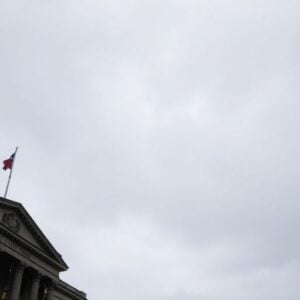Saudi Arabia is experiencing an unprecedented surge in executions in 2025, with concerns mounting over due process and the potential use of the death penalty to suppress dissent. Human Rights Watch and the Middle East Democracy Center report a significant increase in executions, raising alarms about the kingdom’s justice system.
Key Takeaways
- At least 241 people executed in 2025 as of August 5.
- Executions for non-lethal drug offenses and potential suppression of dissent are major concerns.
- Journalist Turki al-Jasser’s execution highlights fears of silencing critics.
- Widespread due process violations are reported in the Saudi justice system.
Alarming Rise in Executions
Saudi authorities have carried out a startling number of executions in 2025, with at least 241 individuals put to death by August 5. This figure, reported by the organization Reprieve, suggests that if the current rate continues, 2025 could see all prior execution records surpassed. Joey Shea, a researcher for Human Rights Watch, stated that the surge in executions is a clear indicator of the "brutally autocratic rule" under Crown Prince Mohammed bin Salman.
Concerns Over Due Process and Dissent
Human Rights Watch and the Middle East Democracy Center have voiced serious concerns regarding the fairness of trials in Saudi Arabia. Reports indicate rampant due process violations and systemic abuses within the courts and criminal justice system, making it highly unlikely that those executed received fair trials. Notably, 162 individuals were executed for non-lethal drug-related offenses, and over half of those executed were foreign nationals.
The execution of journalist Turki al-Jasser on June 14 has particularly raised fears that the government is using the death penalty to silence peaceful dissent. Al-Jasser, known for exposing corruption within the Saudi royal family through his anonymous X account "Kashkool," was accused by the Interior Ministry of various "terrorist crimes" without detailed evidence. His arrest, detention, trial, and execution were conducted in secrecy, with his family reportedly receiving no prior notification of his death sentence or execution.
Broader Patterns of Repression
Al-Jasser’s case is not isolated. Activists suspect that other recent executions were also aimed at crushing dissent. Abdullah al-Shamri, a political analyst, was executed in February 2024, accused of "threatening the stability and endangering the security" of Saudi Arabia. Furthermore, Muhammad al-Ghamdi was sentenced to death for online expression, though his sentence was later commuted. Prosecutors are also seeking the death penalty for prominent figures like Islamic scholar Salman al-Odah and thinker Hassan Farhan al-Maliki, based on charges related to their peaceful statements and ideas.
These cases underscore a trend where Saudi authorities are increasingly using the death penalty to repress freedom of expression. Past mass executions, including 81 men in March 2022 and 37 men in April 2019, have also drawn international criticism, particularly when involving members of the Shia Muslim minority convicted after unfair trials.
International human rights standards, including the Arab Charter on Human Rights ratified by Saudi Arabia, stipulate that the death penalty should only be applied for the "most serious crimes" under exceptional circumstances. The UN High Commissioner for Human Rights has previously expressed alarm at Saudi Arabia’s execution rate, especially after the unofficial moratorium on drug-related offenses was lifted.
Abdullah Alaoudh of the Middle East Democracy Center condemned these actions, stating, "Behind closed doors, Saudi Arabia is executing peaceful activists and journalists following politicized trials. These state-sanctioned killings are an assault on basic human rights and dignity that the world cannot afford to ignore."
Sources
- Saudi Arabia: Executions Surge in 2025, Human Rights Watch.







